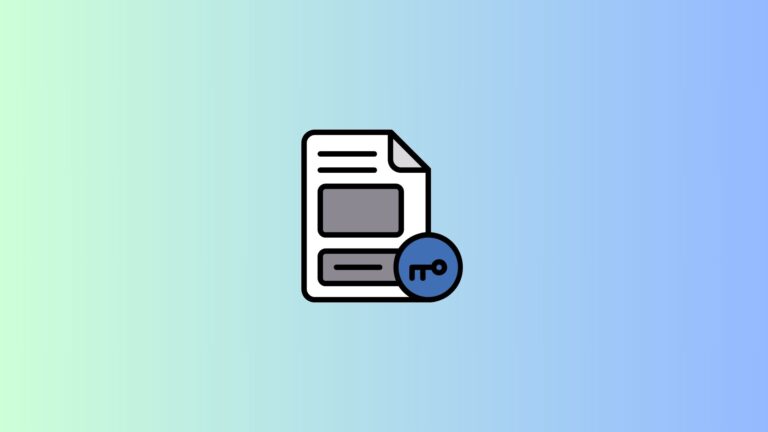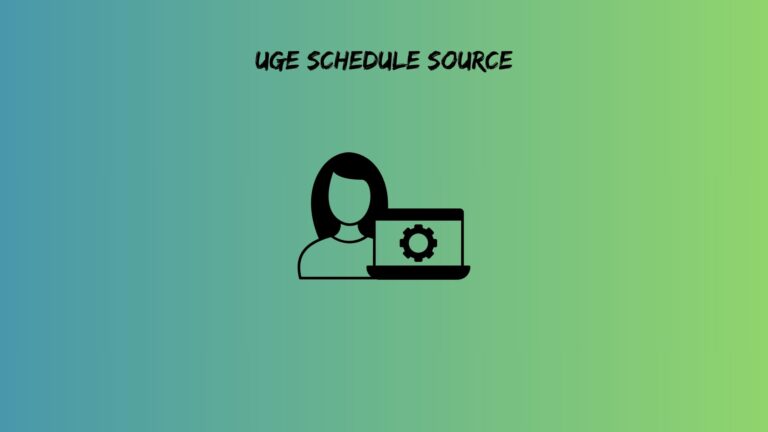Best Local SEO Tools Software in 2025: Dominate Google Maps & Local Rankings
Your plumber is drowning in calls from nowhere. Your dental clinic sits on page 12 of Google Maps. Meanwhile, the competitor two blocks away is raking in bookings like they invented the internet.
Sound familiar?
Here’s the thing: local business SEO software isn’t a luxury anymore. It’s survival. The businesses that show up first in Google Maps and local search results are the ones that don’t rely on guesswork. They use tools. Smart tools.
This guide covers the 10 best local SEO tools software available right now. I’ve tested them, compared what they actually do versus what marketing claims, and identified which ones genuinely move the needle for different types of businesses.
Why Local SEO Tools Matter in 2025 (And Why They’re Different From Regular SEO)
Three years ago, local business SEO felt like a side project. Today, it’s the main event.
Google’s changed how it ranks local results. The algorithm now cares deeply about review authenticity, business information consistency across the web, and relevance within specific geographic areas. Missing even one of these elements tanks your visibility.
Think about how you search nowadays. When you need a coffee shop, dentist, or accountant, you probably type “near me” or let your phone auto-add location data. About 76% of mobile searches include location intent. That’s not a trend anymore. That’s normal behavior.
Here’s where most business owners get stuck: managing your local presence across Google Maps, directories, reviews, and citations takes serious time. One inconsistency in your business name, address, or phone number across different websites can confuse Google. When Google gets confused, it ranks you lower. When you rank lower, customers find your competitor instead.
The software in this guide handles this mess. Some automate citation building. Others track your ranking position in real time. A few do both, plus competitor analysis. The right tool for your business depends on what’s broken in your local visibility right now.
Also read: SEO Services best company
How I Evaluated These Local Business SEO Software Options
Before recommending anything, I checked what actually matters to business owners hunting for local SEO tools:
Can it track your rankings in Google Maps specifically (not just regular Google)? Does it catch inconsistencies in your business information across directories? How well does it help you manage and respond to reviews? Can you handle multiple locations from one dashboard? Does it work alongside your existing marketing tools? Will the pricing make sense for your business size? Is customer support available when you need it?
The 10 tools below each excel at something different. None of them is perfect for everybody. That’s the truth.
The 10 Best Local SEO Tools Software for 2025
1. SE Ranking
SE Ranking does one thing exceptionally well: it makes local SEO feel manageable instead of overwhelming.
What makes it special comes down to three features. First, the local rank tracker follows your exact keywords in specific geographic areas. You see whether you’re ranking in the local pack (those three business listings that show on Google). Second, the citation finder identifies all the local directories where your business appears, then spots where your information doesn’t match your Google Business Profile. That’s hugely valuable because matching data across directories actually moves your rankings up.
Third thing: the competitor analysis for local markets is genuinely useful. You can see what keywords your nearby competitors rank for, where your rankings are stronger or weaker, and identify gaps where you could gain ground.
The software costs between $55 and $239 monthly, depending on features. Agencies managing 10 or more locations find it particularly valuable. The learning curve is reasonable, and the support staff know their stuff when you have questions.
What it doesn’t do well: if you need advanced review management or extensive social media integration, you’ll outgrow this tool. But for core local SEO tasks, it’s reliable.
2. Semrush
Semrush is overkill for a single location. But if you’re managing multiple businesses, running an agency, or competing in really tough markets, it’s probably worth the premium.
The Local SEO Kit inside Semrush tracks Map rankings and gives you competitive intelligence on exactly who’s beating you and why. The reporting features mean you can automate client updates without manually checking rankings every week. Integration with their brand monitoring tools lets you catch reviews and mentions across the web automatically.
Pricing starts around $120 monthly and goes up from there. Larger agencies and established businesses justify this cost through time savings and deeper insights.
The honest drawback: it’s overwhelming at first. There’s so much functionality that you’ll spend time exploring features you don’t immediately need. Also, smaller businesses usually feel like they’re paying for a luxury they’ll never use.
For what it does accomplish: nothing beats the comprehensiveness.
3. AccuRanker
If your whole business depends on knowing your exact ranking position down to the tenth of a percent, AccuRanker exists for you.
This tool updates ranking positions in real time. Not daily. Real-time. That matters when algorithms fluctuate throughout the day. For specific local keywords and especially for agencies running testing or optimization campaigns, that precision changes how you work.
Local SERP tracking focuses specifically on search results in defined geographic areas. The interface is clean and doesn’t waste space on features you won’t use. Monthly pricing runs $99 to $449, depending on how many keywords you’re tracking.
The legitimate limitation: it’s narrow. AccuRanker does rank tracking brilliantly but doesn’t help much with citations, reviews, or competitor analysis. Most people use it alongside other tools.
4. Similarweb
Similarweb approaches local SEO from a different angle entirely. Instead of tracking your rankings, it shows you market behavior by geographic area.
You can see where your competitor’s traffic actually comes from, what regions they’re strongest in, and whether certain locations present untapped opportunities. For understanding the local market before you launch a campaign, this is information gold.
The geographic breakdown of audience data helps you understand whether investing in advertising for a specific area makes sense before you spend money. You also see seasonal trends and competitor gaps that other tools miss.
This isn’t a replacement for traditional local SEO software. Think of it as a research phase tool that informs your strategy before you implement with other tools.
5. Mangools
You probably don’t need to drop $300 monthly on local SEO tools if you’re a solo dentist or small plumber running a side operation.
Mangools costs about $50 to $100 monthly. For that price, you get a local rank tracker, keyword research with geographic targeting, and basic site analysis. The interface is genuinely intuitive, which matters when you’re already busy running your business.
Tools included in the package: SERPChecker shows your rankings for specific keywords in specific locations. KeywordInspector finds local keywords people are actually searching for. SiteProfiler gives you basic technical health checks.
Where it falls short: if you manage 15 locations or need advanced competitor analysis, you’ll hit its limitations. For the price point, though, it delivers solid value.
6. Vendasta
Vendasta took a different approach: what if we built software specifically for agencies that want to sell local SEO to small businesses?
The platform is white-labeled, meaning you can rebrand it and sell it as your own service. It handles citations, reviews, and rank tracking through a client-friendly dashboard. Clients log in, see their progress, and understand what you’re doing for them.
One clever feature: automated reporting. You set it up once, and clients get weekly or monthly reports without you lifting a finger. That’s real time saved.
The pricing structure ties to how many locations you’re managing, so it scales with your business growth. If you’re building an agency, this platform removes the technical burden of building tools yourself.
The trade-off: you’re somewhat locked into their system. Moving away later is possible but tedious.
7. Nightwatch
Maps rankings change constantly throughout the day. Sometimes your business shows up third in the pack. Later, it’s fourth. By evening, you’re back to third. Knowing what’s happening in real time lets you spot problems fast.
Nightwatch specializes in exactly this. Every update to your map position triggers a notification. You’re never guessing whether your ranking shifted or whether an algorithm adjustment affected visibility.
Phone call tracking adds another layer of value. You can connect call data with ranking positions, so you actually know which keywords and positions drive phone calls to your business.
Monthly pricing runs $99 to $399. For local businesses where phone calls equal revenue, this investment makes sense.
The reality: it’s specialized software. It excels at Maps tracking but doesn’t pretend to do everything else. Most people use it for tracking, and another tool for citations or reviews.
8. Uberall
Managing business information across 50 locations through individual logins is a nightmare waiting to happen.
Uberall centralizes everything. Update your hours, photos, or business description once, and it distributes to over 100 directories automatically. This solves the NAP (Name, Address, Phone) consistency problem that haunts multi-location businesses.
Restaurants, franchises, retail chains, and service businesses with multiple locations find this invaluable. Instead of manually updating each location’s information on Yelp, Google, Facebook, and a dozen other platforms, Uberall does the heavy lifting.
Global support across 50+ countries means this tool works for businesses expanding beyond the US.
The catch: you’re paying for orchestration complexity. If you’re managing one location, you won’t need most of what this tool offers.
9. Moz Loca
Moz’s reputation in the SEO world is solidly earned. Their local tool maintains that standard.
If you’re new to local SEO and want something that doesn’t overwhelm, start here. The interface guides you through what matters. Review management is straightforward. Citation building walks you through each step. Rank tracking isn’t fancy, but it’s accurate.
Another advantage: access to Moz Academy education materials. When you’re confused about local SEO concepts, resources are built in.
Customer support actually answers questions. That sounds basic, but it’s not universal in software.
Pricing runs $25 to $249 monthly. Single-location businesses usually land in the affordable tier.
The limitation: advanced users outgrow it. But for foundational work, it’s solid.
10. iSpionage
What keywords is your competitor actually ranking for? iSpionage uncovers this.
The tool analyzes competitor keywords with historical rank data. You see what keywords they’ve ranked for over months or years, not just today. That history reveals strategy.
For the research phase before launching campaigns, this changes your approach. Instead of guessing what local keywords matter, you see what’s working for people you’re competing against.
Export reports for client presentations or strategy documents. The data becomes part of your pitch.
Learning curve is steeper than some tools. But the competitive insights justify the time investment if you’re serious about outranking specific competitors.
Also read: How to Find Someone by Phone Number on Social Media
How to Actually Pick the Right Local SEO Software for Your Situation
The perfect tool depends on honest answers to a few questions:
What’s your budget reality? If you’re bootstrapping, Mangools and Moz Local make sense. If revenue is already flowing, investing $200 plus monthly opens doors to Semrush or Nightwatch.
How many locations are you managing? One location? You don’t need Uberall. Twenty locations? You definitely do.
What’s actually broken right now? Maybe your Google Maps visibility sucks. Maybe your review response time is embarrassing. Maybe your business information is inconsistent across the web. Different tools fix different problems. Identify your main problem first.
Do you have a team or are you solo? Agencies benefit from tools with automation and reporting. Solo business owners benefit from simplicity over features.
What other tools do you already use? If you’re already in HubSpot, choose tools that integrate with it. Integration waste is real-time waste.
The honest move: most tools offer free trials. Test three of them with your actual business data before deciding. Those 20 minutes of testing beat any article comparison.
Real Strategies to Squeeze Maximum Value From Your Local SEO Software
Automation is the secret move most people miss. You can set up monthly ranking reports that email automatically. You can schedule citation audits. You can create alerts for review spikes. Do these once. Then the tool runs them.
Combine tools strategically rather than thinking you need one do-everything platform. Maybe SE Ranking for citations plus Nightwatch for Maps tracking equals your perfect setup for $150 monthly. That combination beats paying $250 for one bloated tool you half-use.
Pay attention to competitor tracking data. When you see a competitor rank for a new keyword in your area, that’s actionable intelligence. Local markets are smaller, so competitor moves matter more than they do in national SEO.
Use your historical ranking data to predict seasonal patterns. If you rank better in summer than in winter, plan campaigns accordingly. If certain locations outperform others, invest more in the winners.
Create custom reports for clients or business partners. Most of these tools generate exports that you can make look professional in a simple Google Doc. That’s the report they’ll actually remember rather than a generic printout.
The Takeaway
Local SEO tools software isn’t getting simpler. It’s getting smarter. Artificial intelligence is quietly powering better keyword research and faster competitor analysis in several of these tools. But the fundamental job remains: give business owners visibility where customers are actually searching.
Pick a tool that solves your biggest problem right now. You don’t need everything simultaneously. Start with one real problem, fix it, then expand from there.
The businesses winning at local SEO in 2025 aren’t the ones spending the most on tools. They’re the ones actually using them consistently. A $50 tool used daily beats a $500 tool gathering dust.
Test a few. Pick one. Start moving your rankings up.
Frequently Asked Questions About Local SEO Tools Software
Do I really need local SEO tools software, or can I do this manually?
You technically can. You can also manually update spreadsheets with ranking data every day, check 50 directories for consistent information, and respond to reviews on seven different platforms. Manually. Every day. Does it sound fun? Local SEO software exists because the manual approach is time you’ll never get back. Even small businesses see ROI within weeks when tools eliminate repetitive checking and tracking. The real question isn’t whether you need them. It’s whether your time is worth $50 to $100 monthly.
What’s the difference between these local SEO tools and regular SEO software?
Local software focuses on geographic visibility and Google Maps rankings specifically. Regular SEO software focuses on national or international rankings across all search results. Local tools emphasize review management, citation building, and local directory presence. Regular SEO tools emphasize backlinks and domain authority. Both are useful depending on your business. Local businesses need local tools. Agencies selling services nationally need broader SEO software. Many choose both.
How long before I see rankings improve after using local SEO software?
This depends on what you’re fixing. If your business information is inconsistent across directories, you might see improvements within two to four weeks after cleaning that up. If you’re working on review generation or citation building from scratch, expect two to three months. If you’re using rank tracking to test keyword strategies, you’ll see data immediately, but ranking improvements take longer. Local SEO isn’t fast. It’s steady. The businesses that stick with consistent effort for three months consistently beat those that expect instant results.







